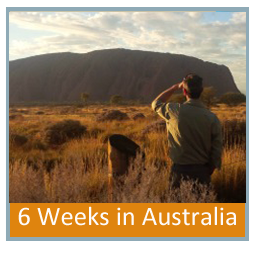Dear readers,
I am sharing this post because there has been a tragedy in my home town of Ottawa. The community has been hit hard and like most parents, I’ve been struggling with how to talk to my children about these three deaths.
Krista Gray-Donald, a friend of mine who works with victims of violent crime, offered to put together some tips and resources for me. In speaking with her, she also offered to share this information here on Coffee with Julie as well as on her own personal blog Life in the Hutch in case there are others looking for some guidance or additional resources.
If this topic is not relevant to you, then I encourage you to move on to something far more joyful (may I suggest Fluevog shoes, perhaps?). For anyone else, you can read more after the jump.
Thinking of you and yours,
Julie xo
*****************************************
A guest post by Krista Gray-Donald
It is so hard to try and explain something to our children when we cannot comprehend it ourselves. In my opinion, the most important thing is that you talk to your children. They need to hear the information from you, someone that they love and trust. This also lets you know they are getting the facts, and not rumours and guesses.
When someone dies from homicide, it is different from a natural or accidental death in that there is the knowledge that someone directly sought to bring harm to a person. That knowledge, coupled with the trauma of the sudden (and violent) death make it very difficult to understand, and even more difficult to explain to adults, let alone children.
It is best if you limit your child’s exposure to media coverage of the tragedy, especially anything that sensationalizes the deaths. Still, children, even those as young as four or five, may be hearing things in the media or in the school yard, and this will lead to questions.
It is important that you take the time to talk to the children in terms that they understand, and answer the questions as honestly as you can (without revealing more information than they are seeking). Don’t be afraid to ask questions of your own if you are not certain what they know or where their questions are coming from. Homicide Survivors, Inc. has an extensive list of tips for talking to children about homicide, found by clicking here.
TALK
- As soon as possible after the death, set aside time to talk with the child.
- Give the child the facts as simply as possible. Do not go into to much detail; the child will ask more questions if they come to mind.
- If you can not answer the child’s questions, it is okay to say, “I don’t know how to answer that, but perhaps we can find someone to help us”.
- Use the correct language, i.e., “dead”, “murdered”, etc. Do not use such phrases as “S/He is sleeping”, “God took him/her to heaven”, “S/He went away”, etc.
- Ask questions. “What are you feeling?”, “What have you heard from your friends?”, “What do you think happened?”, etc.
- Discuss your feelings with the child, especially if you are crying. This gives the child permission to cry too.
- Adults are children’s role models, and it is good for children to see our sadness and to share mutual feelings of sadness.
- Use the deceased’s name.
- Talk about a variety of feelings, e.g., sadness, anger, fear, depression, wishing to die, feeling responsible, etc.
- Talk about the wake/funeral, explain what happens, and ask the child if s/he wants to go. Include him/her, if possible.
- Talk with the child about your family’s spiritual beliefs, including what happens to people after they die.
- Talk about memories of the deceased, both good and bad.
THINGS TO DO
- Read to the child about death. There are many good children’s books available (see list at the end of this post)
- Read a book about children’s grief so you have a better understanding what your child is experiencing.
- Help the child write a letter to the deceased.
- Help the child keep a diary of his/her feelings.
- Invite your child and his/her friends, family members, etc. to plan a memorial for the deceased.
- Discuss rumors, media reports, etc., with the child so that s/he can clarify information regularly.
- Be alert for reports or observations of “bad dreams”. Talk about them with the child. Dreams are sometimes a way to discharge stress.
- Be alert for behavioral changes in your child. If they concern you, seek professional help.
- Understand your child’s level of comprehension and speak at that level.
- It may take some time for your child to understand the concept, “gone forever”, especially if s/he is very young.
- Your child may think that s/he caused the death because s/he had been thinking bad thoughts or had been angry with the deceased just before the death.
- The sudden and unexpected death of a peer is especially difficult for a child to comprehend; children tend to feel invulnerable.
As the child processes the information that you give them, they may repeat questions again and again, or exhibit other unexpected behaviours. Some common behaviours to watch for include; shock, anger, terror, guilt, emotional outbursts, intense sadness, and irritability. They may also display some physical symptoms such as fatigue, insomnia, digestive upset, chills, headaches, change in appetite and other symptoms. These reactions are quite normal, and should diminish in time. If you are concerned about your child’s changing behaviour, or if the changes persist or intensify, you should talk to your family doctor.
Each child will deal with this knowledge differently, but there are some common reactions based on their developmental age (from Canadian Resource Centre for Victims of Crime).
Preschool Children: Three to Five Years of Age: Preschool children have a limited understanding of death. They may believe that death is temporary and can be reversed, or perceive a dead person as asleep, gone away or broken. There is no understanding of personal death.
School Age Children: Six to Nine Years of Age: Children in this age group have a clearer understanding of death although they may still believe that it will not happen to them. Children at this age may be interested in the physical and biological aspects of death. Dealing with grief is difficult as school age children alternately confront and deny their grief. They may also be unprepared for the length of the grieving process. It is common for children in this age group to experience:
- Denial
- Difficulty expressing their strong feelings of loss
- Difficulty eating and sleeping
- Physical ailments such as stomachaches and headaches
- Fearfulness
- Decrease in school performance
- Inability to concentrate
- Anger directed towards teachers or classmates
- Inappropriate classroom behaviour
Pre-adolescent and Adolescent: 10 to 18 Years of Age: Children in this age category have a more mature understanding of death and mortality. They understand that it is irreversible. They also understand personal death, although they may view themselves as immortal. These children may experience guilt, confusion, depression, shock, crying, stomachaches, headaches, insomnia, exhaustion, dramatic reactions such as not sleeping or eating, decrease in school performance, change in peer group, possible drug use and/or sexual promiscuity.
There is no right answer about how to talk to your children about traumatic death, just as there is no typical reaction – by any child or adult – to a tragic loss. Talk to your child’s school, a counsellor, or your family doctor if you are concerned about how your child is responding to the the trauma, or if you want help supporting them at this time.
















Thanks so much Julie for sharing this information with our community. I will be passing this along to everyone I know dealing with this tragic situation.
I’m so glad you found it helpful. ((hugs))
This is a great post Julie and Krista. Thanks.
It is some months since there was an attempted murder in the house next door to ours. It was not nearly as public an event as the terrible tragedy that happened near you but in the time that has passed I have found that it is a topic that keeps re-occurring in my kids’ minds. They bring it up and re-hash how they remember/understand it and feel about it every now and then.
Despite some effort on my part and reading about it, I fail on several very basic levels to understand it myself. Our natural inclination might be to try to stop talking about it after a while but I hope that by shedding light on it we’re helping our kids to deal with their fears of evil and banishing it more effectively than by ignoring it.
My heart goes out to the entire community as you mourn and I hope you can keep talking and communicating so constructively.
Oh Krista … right next door? That must be so frightening for you and the whole family.
Thanks so much for this, Julie and Krista. I haven’t been sure at all what to say, or how to say it. I’ll give it a try tonight.
You have provided a wonderful public service as we grapple with the horror of this tragedy. Thank you
Julie – thank you for this post. There are many wonderful resources to equip families with proper coping mechanisms.
I hope you don’t mind but I have shared with our Stittsville Public School Parents facebook page – where many parents go to get updates.
Jacqueline … no, please share to anyone looking for resources! Krista and I just wanted to get some helpful information out there. Cut and paste, print hard copies, whatever works ….
It is in reality a great and useful piece of info.
I am glaad that you just sharred this useful
info with us. Please stay us upp to date like this.
Thank you for sharing.